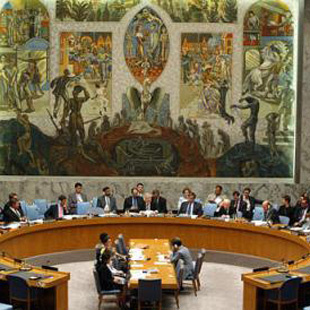Why is the West Belaboring an Invasion of Iran?

Traditionally, governments were free in the use of force prior to the 20th century and it was at the beginning of that century that Drago-Porter or Stevenson’s theories were introduced which prohibited the use of force by countries against others. The Kellogg-Briand pact, which was signed in 1928, brought nations together and banned any intentional use of force by countries in their international relations. When Germany abandoned this pact and started the Second World War, states realized that this pact was not enough to prevent the use of force.
Despite this pact and other international agreements, WWII still took place.
After the war countries, realized that if the use of force among states was free in their international relations, then countries would not be able to live peacefully together.
That’s why the designers of the UN charter included the prohibiting of the use of force in Article 2, paragraph 4 of the charter, which according to the International Court of Justice in the Congo-Uganda case (in 2005) is the cornerstone of the UN charter, which caused international relations to take a step towards a mutually peaceful existence.
In other words the prohibition of the use of force in international relations is based on the respect for the life of individuals. Even though this might be an inappropriate comparison, international life could not have another meaning other than territorial integrity and the non-use of force.
In paragraph 4 of Article 2 of the UN charter, we have Article 51, which allows countries to defend themselves when they are threatened or are victims of any military force. The nature of this right lies in the recognition of a principle which is the infrastructure of international life. In other words, we have the legitimate defense against the prohibition of the use of force that is said to have migrated from domestic systems to the international system.
However this defense should be within the UN charter framework and its paragraph 4 of Article 2. This means that the principle is based on the non-use of force unless a country illegally uses force and it is then that a country that has fallen victim to that force that can legally defend itself.
The condition for a legitimate defense is when an armed attack has taken place; which is a disputable point in itself. The issue of preventive or pre-emptive self-defense stems from this right as well.
After the UN charter was ratified, some powerful countries of the time such as the Soviet Union and the United States conducted some acts that could be construed as the misuse of the rightful defense. The Soviet Union began military interventions in countries like the former Yugoslavia, based on Bergenhof theory, and labeled it as rightful defense. The US intervened in Granada, the Dominican Republic and some other countries based on the concept of protection for the free world.
The stance of countries in regards to the recognition of the meaning of the preventive right of defense is determinant in this case. Many countries were against the preventive right of defense and voiced their disagreement in the UN and through conventions and declarations. On some occasions some countries referred to the constant threats they received to their national security, based on which they could play the rightful defense card.
It should not be forgotten that according to international law, preventive right of defense could only take place when in a war zone or an air maneuver the aircrafts of a country take an attack position or shoot enticingly, which could be signs of an actual attack. Naturally, in such a case the right to a rightful defense is formulated. The UN can itself vote for a use of force against threats or the violation of peace if the majority plus 5 of the permanent members of the Security Council agree with it. But individual countries cannot use force themselves. As mentioned, according to the International Court of Justice this is the cornerstone of the UN charter and if this principle is compromised then the whole UN charter and International Law will be under question.
There are two main theories about the preventive right of defense:
1- The preventive right of defense
2- The pre-emptive right of defense
The first right could be used as in the case mentioned above where an attack is obvious. But powerful or abusive countries could emphasize a full-scale attack where no specific armed attack has taken place, or the attacks have to be resolved through peaceful negotiations.
For example in the case of Iran’s nuclear dossier, where they claim that Tehran is pursuing the development of nuclear weapons, they consider it a right for either regional or other countries to conduct pre-emptive defense against Iran.
It should be said that no country is allowed to conduct any military operation against a country that it assumes is developing arms in order to later attack other countries, based on the absolute ban indicated in Article 4.
Many international law theorists and International Court of Justice judges do not believe in the pre-emptive right of defense, and they have voted against it in the case of Iranian oil wells and the US as proof.

